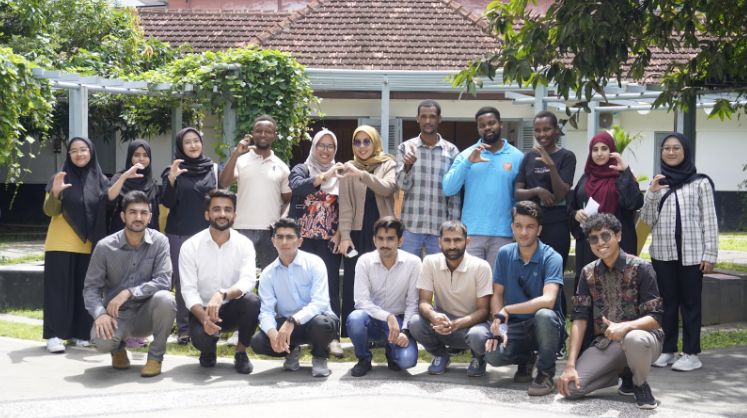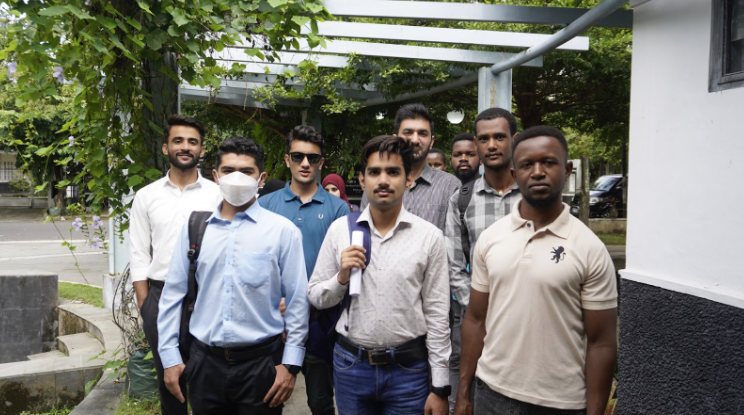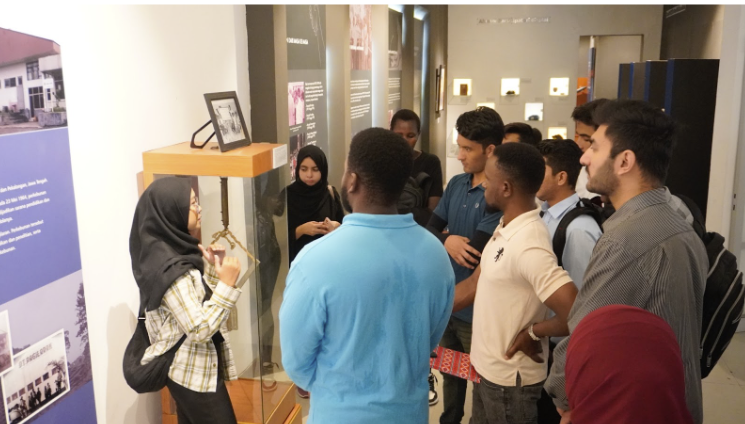
Yogyakarta, 24/01/2025 – Students from the Gadjah Mada International Fellowship (GMIF) program had the opportunity to visit the UGM Museum as part of the Listening and Reading course. This visit is not just an educational trip, but also an in-depth reflection on the role of educational institutions in shaping a better society. The UGM Museum presents the story of the journey of the oldest university in Indonesia, including its various contributions in the fields of science, social, and culture.
The sections in this museum are divided into six periods in the development of UGM, namely:
- In the Midst of the Struggle (1946-1949), This section tells the history of the founding of Universitas Gadjah Mada. It begins with the presentation of the early story of the pioneering of the Universitas Gadjah Mada institution and the important figures who played a role in the process.
- Laying the Foundation of Education (1949-1960), This section tells the story of Universitas Gadjah Mada’s exploration and efforts to establish its identity and contribute to Indonesia. The narrative focuses on the development of the idea that students do not only learn and become students, but also participate in physical struggles and critical thinking.
- Building National Civilization (1961-1982), This section tells about the innovations and findings of the academic community of Universitas Gadjah Mada that are appropriate and beneficial for society.
- Becoming a World University (1982-2002), During this period, it is described that Universitas Gadjah Mada’s efforts to become famous in the eyes of the world through various literary works of the academic community and various programs such as Real Work Lectures (KKN).
- Upholding the Dignity of the Nation (2002-2017), The University of Gadjah Mada is one of the pioneers in the development of values and innovations that will elevate the dignity and status of the Indonesian nation in the eyes of the world. This is shown through various works based on the values of Universitas Gadjah Mada’s identity.
- Living in Bulaksumur, One of the interesting facts discovered by the participants was that the 44th President of the United States, Barack Obama, once lived in the UGM environment. This shows that this university has become part of global history and continues to contribute to building world civilization.
During the visit, GMIF students participated in various interactive activities designed to deepen their understanding of the history and role of UGM. They took a guided tour of the museum by the curator, listened to explanations about the historical collections, and discussed UGM’s contributions in various fields. Not only that, they also participated in a group reflection session, where they shared perspectives on how history can inspire a better future. This activity not only improved their academic understanding but also strengthened togetherness and collaboration among students.

Quality education is the main key in creating a generation that is aware of the importance of history and oriented towards a sustainable future. Through direct experiences such as museum visits, students not only gain academic insight but also grow awareness of the importance of innovation, inclusivity, and collaboration in building a more advanced society.
Initiatives like this also reflect the spirit of education that is not only limited to the classroom, but also builds curiosity, appreciation for cultural heritage, and encourages a constructive exchange of ideas. With more students involved in activities based on historical and cultural exploration, it is hoped that individuals will be formed who are not only academically intelligent but also have high social awareness.

Museums are not just repositories of artifacts from the past, but also living laboratories that connect history to the challenges of the present and the future. By integrating experiential learning, we contribute to creating a more just, inclusive and sustainable world for all.
[INCULS, Thareeq Arkan Falakh]

